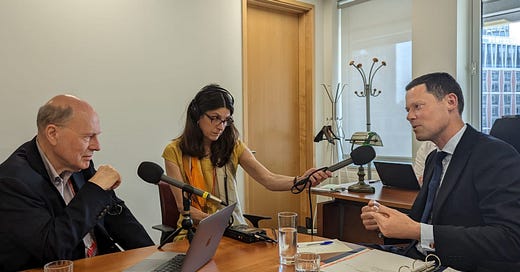Chief justice can choose her title
Only two candidates applied for the top judicial post in England and Wales
The most senior judge in England and Wales will be invited to choose her own title, the lord chancellor Alex Chalk told me in an interview to be broadcast by BBC Radio 4 on Law in Action this afternoon.
Contrary to a report in the Telegraph — subsequently repeated by by The Times and the Mail — no “constitutional” amendment will be needed because section…
Keep reading with a 7-day free trial
Subscribe to A Lawyer Writes to keep reading this post and get 7 days of free access to the full post archives.



